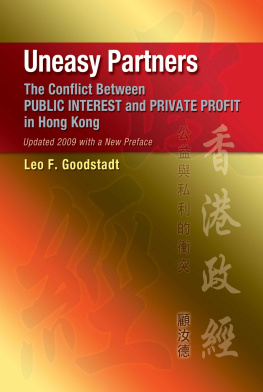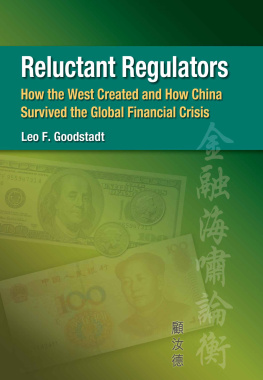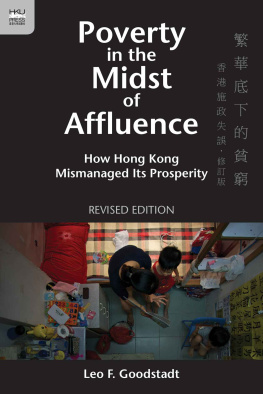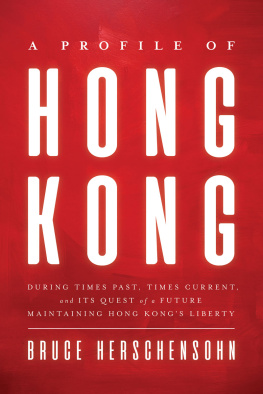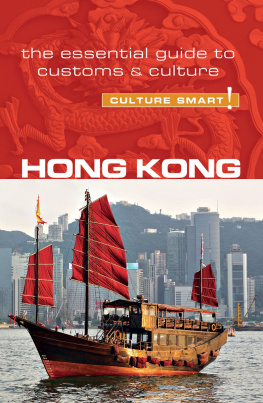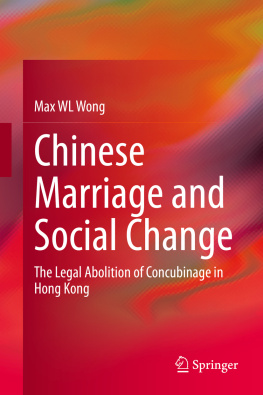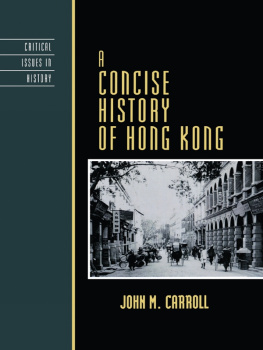Contents

Hong Kong University Press
The University of Hong Kong
Pokfulam Road
Hong Kong
www.hkupress.org
Leo F. Goodstadt 2005, 2009
ISBN 978-962-209-733-9 (Hardback)
ISBN 978-988-8028-09-2 (Paperback)
ISBN 978-988-220-506-2 (eBook)
All rights reserved. No portion of this publication may be reproduced or transmitted in any form or by any means, electronic or mechanical, including photocopy, recording, or any information storage or retrieval system, without prior permission in writing from the publisher.
British Library Cataloguing-in-Publication Data
A catalogue record for this book is available from the British Library.
First printing 2005
First eBook 2013
10 9 8 7 6 5 4 3 2 1
Preface Expectations of Excellence
Among all the people of China, the most fortunate in the second half of the twentieth century were the inhabitants of Hong Kong. They had been insulated from warlords and civil war, from revolution and invasion until the Japanese occupation in 1941. This privileged existence continued after the Chinese Communist Party came to power in 1949. Its leaders put aside their dogmas and foresaw that Hong Kongs colonial status could serve the national interest throughout the era of the Cold War. Some two decades later, Deng Xiaoping realized how Hong Kongs sophisticated capitalist economy would assist China even more once the open door policies had been adopted and the country embarked on a programme of economic liberalization from 1979. As a result, Hong Kong escaped the traumas of the radical social experiments and the mass campaigns which swept the Mainland throughout the decades of Mao Zedong. Hong Kong was also buffered against the political and social strains that followed the economic reforms of Deng Xiaoping.
Hong Kong was left free to create a remarkable city-state. It remained firmly Chinese in culture, language, and loyalties. Yet, it was fully integrated into the global economy. Its economic ascent started from the ruins left by the Japanese occupation from 1941 to 1945. Its progress was unassisted by any significant aid programmes, even from the United Kingdom whose dependent territory it was until 1997. This Chinese community created a society that attained superior standards of social order and stability, of health and education, of care for the vulnerable and those with disabilities. All this was achieved in spite of inadequate housing, grim working conditions, and a government reluctant to accept responsibility for fostering a quality of social development to match the citys economic progress until relatively late in the colonial era.
This was the historical experience that had shaped Hong Kong and its community. For Hong Kong after the British, the key issue was whether this experience would help or handicap its people and institutions in making the most of the return to Chinese rule. This preface seeks to summarize the main economic and political features of the post-1997 landscape in order to provide a template by which to assess Hong Kongs past as discussed in the chapters that follow.
An Absence of Revolution
Throughout the colonial era, calls for an end to British rule were rarely heard. Indeed, the British presence was Hong Kongs principal attraction since the political boundary meant that its people were able to live at a safe distance from the traumas and turmoil that so frequently overtook the Mainland. Its residents also enjoyed the promise of personal prosperity, and in the second half of the last century, they lived in a state of constant economic boom. The community seemed to tolerate the lack of democracy without complaint, and public agitation for political reforms only surfaced once Sino-British talks had begun on how Beijing would treat Hong Kong under Chinese rule.
China sought to arrange Hong Kongs post-colonial future so that there would be no radical rupture with the past, no rejection of policies and practices adopted under British rule and no campaign to cast out colonialism and all its legacies. The past is faithfully enshrined in the Basic Law, Beijings constitutional blueprint for post-colonial Hong. The absence of revolutionary change has thus given history a special influence on present-day Hong Kong.
Not that Chinas leaders expected that nothing would alter in 1997. At the very least, there would be a marked change in public attitudes and in the relationship between the post-colonial rulers and the people of Hong Kong. At the end of British rule, how could the community fail to feel a sense of liberation from a humiliating past and to discover a newfound pride in being fully part of the Chinese nation whose status in world political and economic affairs was becoming ever more prestigious? In common with public opinion generally in Hong Kong, Mainland officials believed that British rule had involved subordinating Hong Kong interests to those of the United Kingdom. Henceforward, this inferior status would disappear as Hong Kongs people came under the direct care and protection of Beijing. During the colonial era, constant public criticism of government had been inevitable and justified in Beijings eyes as the community expressed its opposition to alien rule. After 1997, the need for politicians, academics and the media to struggle to defend the wellbeing of Hong Kong people would disappear, and there would be harmony instead of contention. The conflicts created by colonial rule would be replaced by the Chinese governments total commitment to Hong Kongs stability and prosperity and the principle of Hong Kong people ruling Hong Kong with a high degree of autonomy.
Ideal Partners
Translating these slogans into reality was to prove easier said than done, however. How to choose these Hong Kong people was a major challenge. The colonial administration had coopted representatives of the business and professional lite as its collaborators in the political system because it could not seek legitimacy at the ballot box. Thus, political power traditionally had been controlled by a partnership between expatriate officials and business, with both parties cooperating to create a pro-business environment and to minimize intervention in social as well as economic affairs. These arrangements survived longer than anywhere else in the colonial empire because the British delayed the start of constitutional reforms till 1985, and these had made only limited progress by 1997. Even Christopher Pattens 1992 constitutional package that provoked so much hostility from Beijing and from business fell far short of introducing a legislature chosen by universal suffrage. Apart from widening the electorate, his constitutional proposals left in place the indirectly-elected functional constituencies and an electoral college, together with the other political arrangements laid down in the Basic Law.
For Chinas leaders, free elections and competing political parties were not the preferred option. The history of the Red Guards and the chaos of the Cultural Revolution (196676) had shown how easily public criticism could sweep away even the most senior officials, and a fear of political disorder was a prominent feature of Deng Xiaopings public comments on Hong Kong. Since Beijing wished to postpone universal suffrage and representative government to a distant future date, Hong Kongs traditional arrangements had obvious attractions. Beijing could take over the colonial administrations political partnership with the business and professionals. This had always been an uneasy alliance for the British, and once the transition to Chinese rule got under way in 1984, the lite was happy to find new partners on the Mainland. Chinas leaders found that the lite could be relied on to support Beijing and to oppose populism while safeguarding the capitalist system. Pattens attempt to increase the publics involvement in government was reversed in 1997, and business interests were given a dominant voice in the selection of the chief executive and a virtual veto in the legislature. The lites superior status seemed all the more sensible since Hong Kongs entrepreneurs and investors had played a major part in the nations breakneck growth from 1979. Who better than this lite, therefore, to guarantee a prosperous and stable future for Hong Kong under Chinese rule?
Next page
